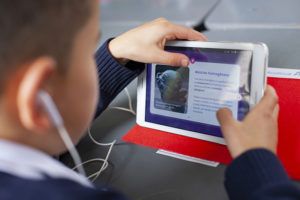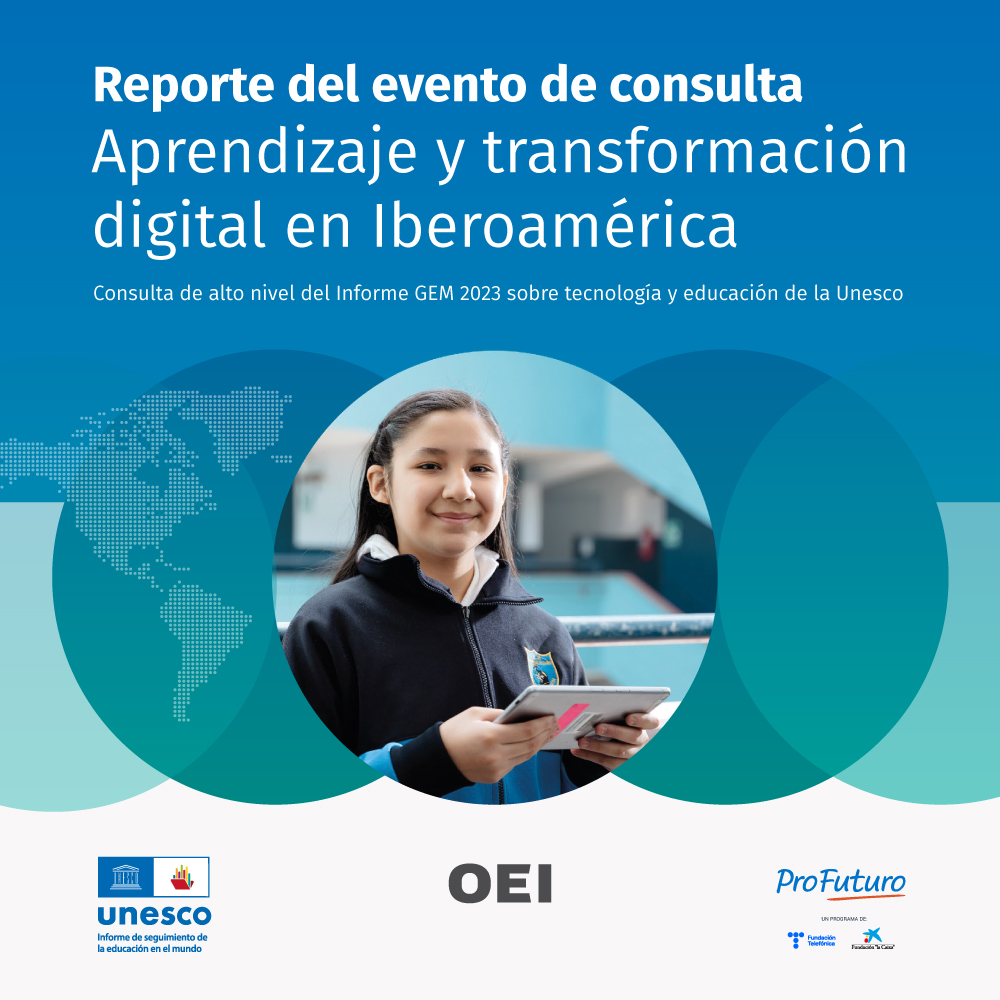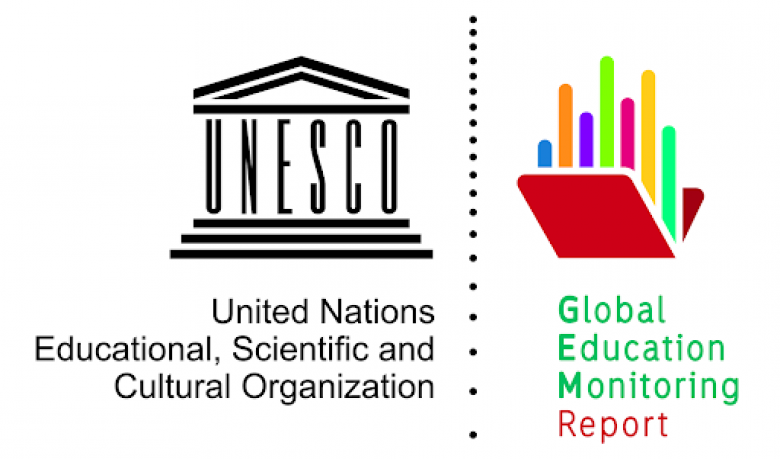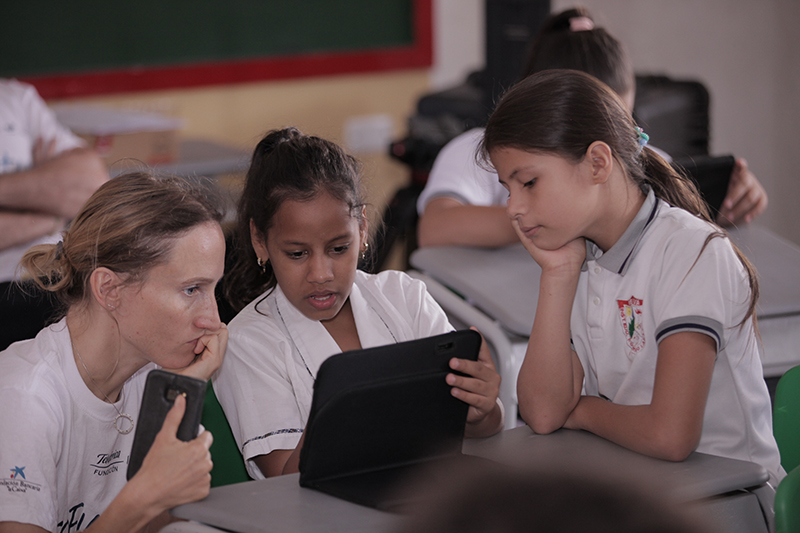
Each year, the Global Education Monitoring Report (GEM Report) takes an in-depth look at the global state of education. With 16 issues between 2002 and 2020, the GEM Report forms an essential part of the global educational architecture. Each issue focuses on a specific topic related to education and comprehensively and thoroughly analyses it from multiple standpoints. This year’s issue focuses on the role of technology in promoting education under the terms set out in the Sustainable Development Goals (SDGs). The 2023 GEM Report will address the educational challenges for which technology can offer solutions and the conditions that need to be in place in education systems to enable technology at schools to reach its full potential.
For this issue, the Organisation of Ibero-American States (OEI), the ProFuturo Foundation and the GEM Report organised a high-level consultation to compile literature, data and evidence-based examples of the digital transformation in Ibero-America. Over the course of two days, high-level public policymakers and global education experts met in person and remotely to debate the challenges and opportunities involved in using technology in education. The discussions focused on three topics: digital skills, educational leadership and the digital transformation and early childhood and the digital transformation.
In this article we highlight the main discussions and the findings stemming from this consultation event. Firstly we’ll pose five questions to help us to cover the main issues surrounding the debate on transforming education with technology, then we’ll examine seven major challenges to be faced and, finally, we’ll offer twelve keys to help us to address them so as to ensure that the use of technology in education reaches its full potential in Ibero-America.
The questions
Questions are the essential tool for human knowledge. They encourage analysis, reflection, the identification of challenges and obstacles and the finding of solutions and they stimulate our creativity and help us to further our understanding of problems. Thus, in order to further our understanding of the transformation of education with technology in Ibero-America, we will ask the following questions:
- How can we re-imagine learning in Ibero-America by means of the digital transformation?
- What opportunities and risks are there in using technology in education?
- What elements should digital literacy plans contain in order to achieve suitable progress in the skills of students, teachers, managers and schools?
- Is educational technology the solution to learning problems in the Latin American and Caribbean region?
- How can its full potential be harnessed?
How can we reimagine learning in Ibero-America through digital transformation?
The major challenges
The speeches of the experts and policymakers referred to the following challenges:
- Poor connectivity, particularly in rural areas. Connectivity plays an essential role in combating inequalities and it’s still a challenge in Ibero-America. According to the Economic Commission for Latin America and the Caribbean (ECLAC), there were around 230 million broadband connections in the region reaching approximately 47% of the population in 2021. This figure falls to 20% in rural areas.
- Practically non-existent educational content. Today, despite their importance, digital learning platforms and public learning resources are either non-existent or difficult to find and navigate, lacking in quality and comprehensiveness and inaccessible to a large number of students and teachers. For example, globally speaking, 40% of children don’t have access to education in a language they understand. It’s estimated that six years of mother-tongue education are necessary to reduce the inequality gaps affecting minority ethnic pupils. This issue is particularly important in Latin America, where 10 per cent of the population is indigenous. There’s therefore an urgent need to translate the educational materials into the languages that co-exist in the region. Efforts should be made to ensure free and open access to materials for teachers and students.
- Ill-advised, decontextualised and ineffective teacher training. Teacher training is another of the major challenges facing the educational transformation. Thousands of teachers declare that they don’t have the digital skills required to use technology in the learning processes, despite having attended standard training courses. We can conclude that the training they receive is excessively theoretical, decontextualised from their daily experiences in the classroom and, therefore, highly ineffective when it comes to developing skills that should be eminently practical.
- The key lies in innovation. We know that technology can greatly expand the potential of education systems. However, we also know that having devices and connectivity doesn’t guarantee or determine the quality of the education received and that the key lies in innovation. More specifically, adequate teacher training should be geared towards the dual innovative dynamic required by the EdTech challenge: pedagogical innovation and digital innovation.
- More and better information for the drawing up of public policies. The construction of public policies is a complex process that requires reliable information. We need more and better data that are standardised and organised, with public policies for sharing and intelligently analysing them as a core element of a timely redesign of education policies.
- Public-private partnerships. Public-private partnerships can be an effective strategy in developing the EdTech sector and improving the quality of education.
- Great attention to equality. Efforts must be made to ensure that the gains brought about by the digital transformation of education are distributed equitably and properly. In this regard, in reference to the previous challenges, it is essential to ensure that all the students have access to the technology and digital tools required to participate in the online learning, that the digital educational resources are accessible to everyone, that the teachers are trained to use the digital technologies and tools effectively, that the digital educational materials and resources reflect the students’ cultural diversity and that the progress is continuously monitored and evaluated to ensure that it is equitable.
The construction of public policies is a complex process that requires reliable information.
Twelve keys to the digital transformation of education in Ibero-America

Below we share the keys to addressing the challenges posed by the digital transformation of education in Ibero-America that emerged from the debate.
- Well-focused teacher training. What should the training be like in order to be effective? We can’t focus it on replicating analogue practices that no longer work. It should be aimed at transforming educational practices. The first question we should ask is what we want to use technology for. What kind of learning experiences do we want the teachers to be able to offer their students through technology? In this respect, there are examples of good practices in training and the development of teachers’ digital skills with solid evidence of results in areas such as teaching support, content creation and exchanges of practices between peers.
- Raising awareness of the innovative dynamic. It’s important to raise awareness within the educational community and society so that they recognise that educational innovation is a cross-cutting element leveraged by technology. The implementation of the innovative dynamic must be assumed individually and collectively by the teachers and headteachers at the educational centres (innovations cannot be imposed) and it must engage all the actors in the educational community, including the students and their parents or guardians.
- A culture of techno-pedagogical innovation throughout the ecosystem. A culture of techno-pedagogical innovation must be generated among the public administrations and the other educational agents. By, for example, raising awareness and providing training to turn innovation in teaching into a crucial factor in their educational strategies. This “technical-administrative” awareness must go beyond the states’ borders to influence regional and global cooperation.
- Metrics matter. Standards, metrics and guidelines are vital. The goal of integrating a kind of innovation that’s as multidimensional as technology into an ecosystem as complex as education requires every input or action to be set by standards. It will then be possible to frame, monitor and evaluate both the design of the interventions and the kinds of training and support that the teachers receive.
- Educational leadership plays a central role in the digital transformation. Educational leadership is the second most influential factor in the students’ learning outcomes, behind the teaching in the classroom. Good leadership can influence the development and implementation of digital policies and it plays a central role in the digital transformation. The selection and training of the schools’ headteachers should be an item on the education agenda of all the countries due to its impact on learning outcomes.
- Selection and training of the schools’ headteachers. The selection and training of the schools’ headteachers should be an item on the education agenda of all the countries due to its impact on learning outcomes.
- Reinforcing the pedagogical training of the educational leaders. Reinforcing the pedagogical training of the educational centres’ leaders is an essential condition for their transformation. This is why we need leadership programmes of pedagogical quality that are sustained over time and based on evidence of what works and support.
- Context matters. Many of the strategies that have been developed in the region don’t take into account the schools’ realities, thus putting the educational leaders in very difficult situations, as they are often required to implement certain programmes for which they don’t have the capacity, infrastructure or facilities.
- The importance of a systemic approach to the digital transformation. The schools’ headteachers don’t operate in a vacuum; they need the support of the teachers, a curriculum that’s suited to hybrid learning formats and close cooperation with the policymakers to ensure that the national policies and programmes facilitate the digital transformation.
- Separating policy changes from education policies. We need to develop administrative, constitutional and legislative mechanisms to separate political instability and the changes in the public administration from the educational leadership policies.
- A clear policy on the incorporation of technology is required to ensure that both the teachers and the families know how to help the children when they have to use technological tools, thus minimising the risks as much as possible.
- Training for families and teachers. Family training was highlighted as a relevant line of work, given that the vast majority of families have devices, but their cultural capital is what determines how they are used in their homes. Moreover, some recent studies indicate that devices are over-used in the home while they are under-used in the classroom. The teachers must therefore be trained to ensure that they know how to make appropriate pedagogical use of the devices and, in turn, guide the families.






